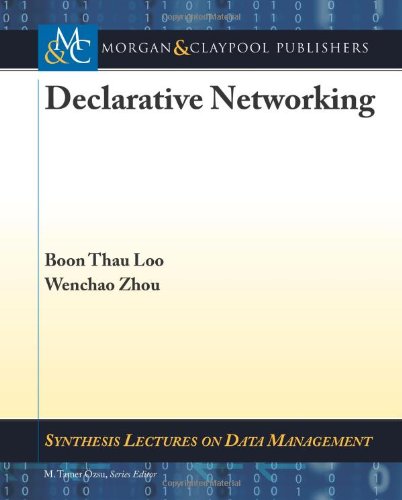

Most ebook files are in PDF format, so you can easily read them using various software such as Foxit Reader or directly on the Google Chrome browser.
Some ebook files are released by publishers in other formats such as .awz, .mobi, .epub, .fb2, etc. You may need to install specific software to read these formats on mobile/PC, such as Calibre.
Please read the tutorial at this link: https://ebookbell.com/faq
We offer FREE conversion to the popular formats you request; however, this may take some time. Therefore, right after payment, please email us, and we will try to provide the service as quickly as possible.
For some exceptional file formats or broken links (if any), please refrain from opening any disputes. Instead, email us first, and we will try to assist within a maximum of 6 hours.
EbookBell Team

4.7
26 reviewsThis book provides an introduction to basic issues in declarative networking, including language design, optimization and dataflow execution. The methodology behind declarative programming of networks is presented, including roots in Datalog, extensions for networked environments, and the semantics of long-running queries over network state. The book focuses on a representative declarative networking language called Network Datalog (NDlog), which is based on extensions to the Datalog recursive query language. An overview of declarative network protocols written in NDlog is provided, and its usage is illustrated using examples from routing protocols and overlay networks.
This book also describes the implementation of a declarative networking engine and NDlog execution strategies that provide eventual consistency semantics with significant flexibility in execution. Two representative declarative networking systems (P2 and its successor RapidNet) are presented. Finally, the book highlights recent advances in declarative networking, and new declarative approaches to related problems.
Table of Contents: Introduction / Declarative Networking Language / Declarative Networking Overview / Distributed Recursive Query Processing / Declarative Routing / Declarative Overlays / Optimization of NDlog / Recent Advances in Declarative Networking / Conclusion